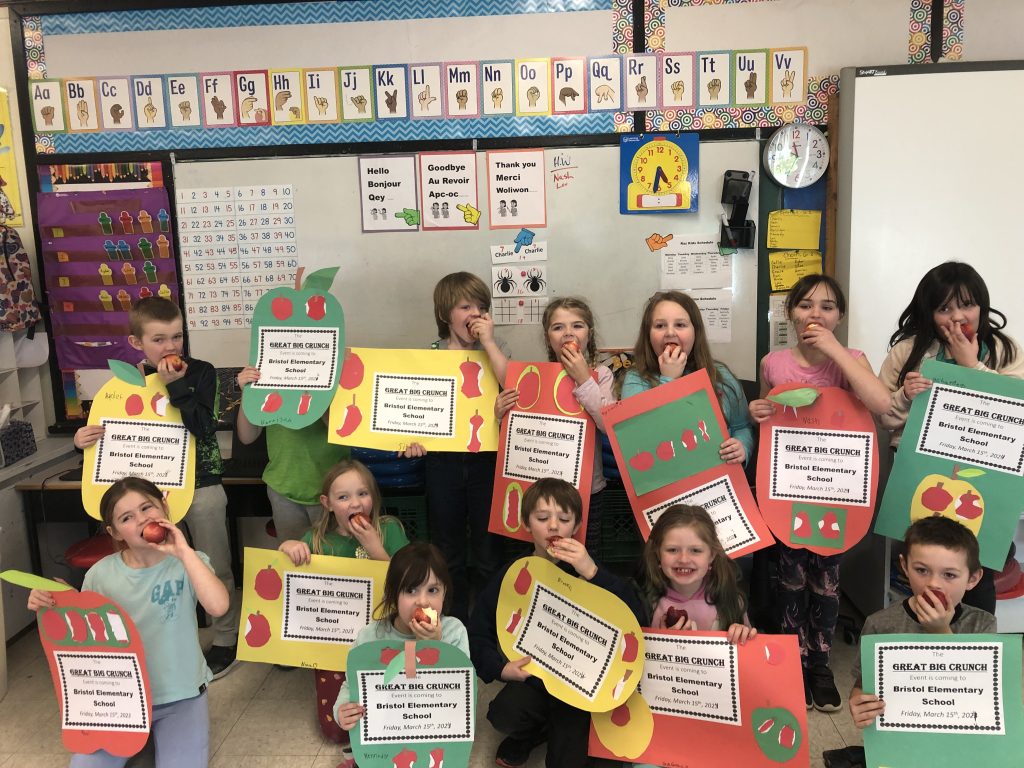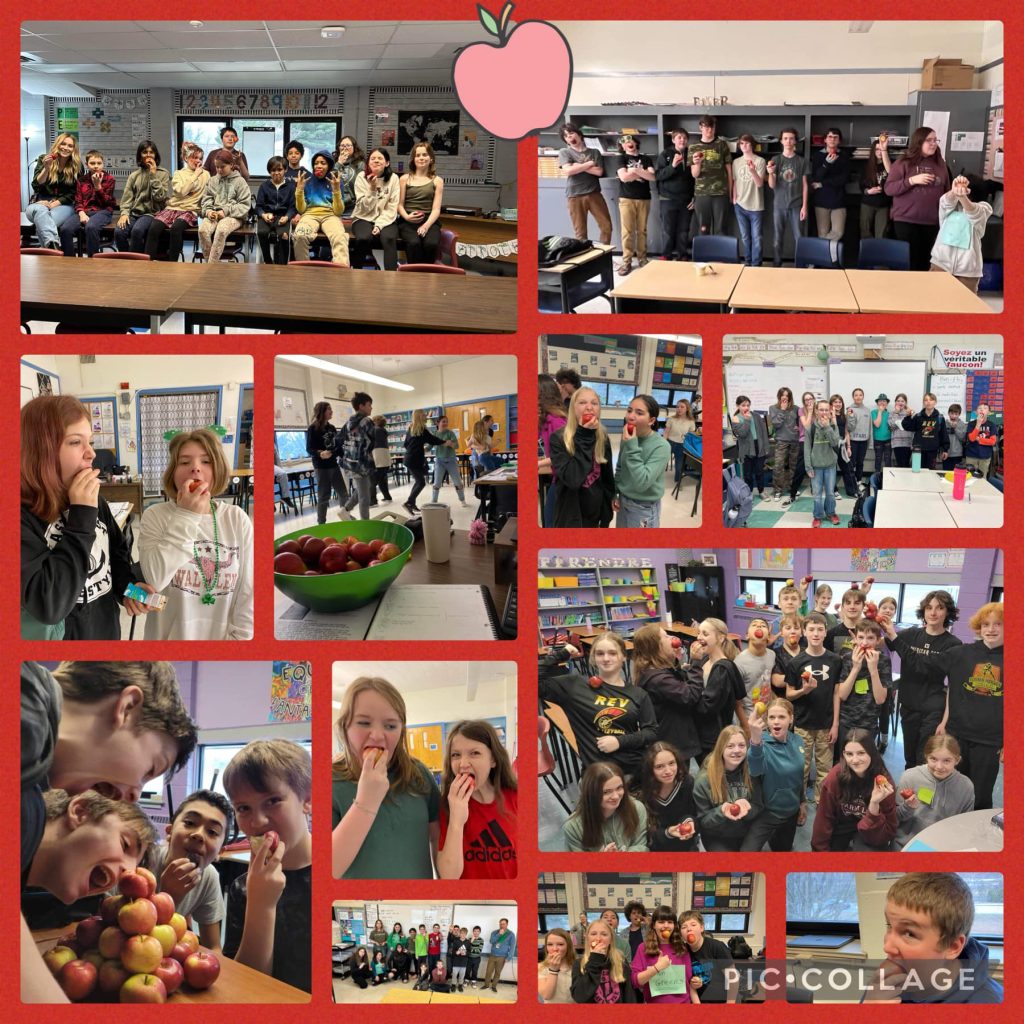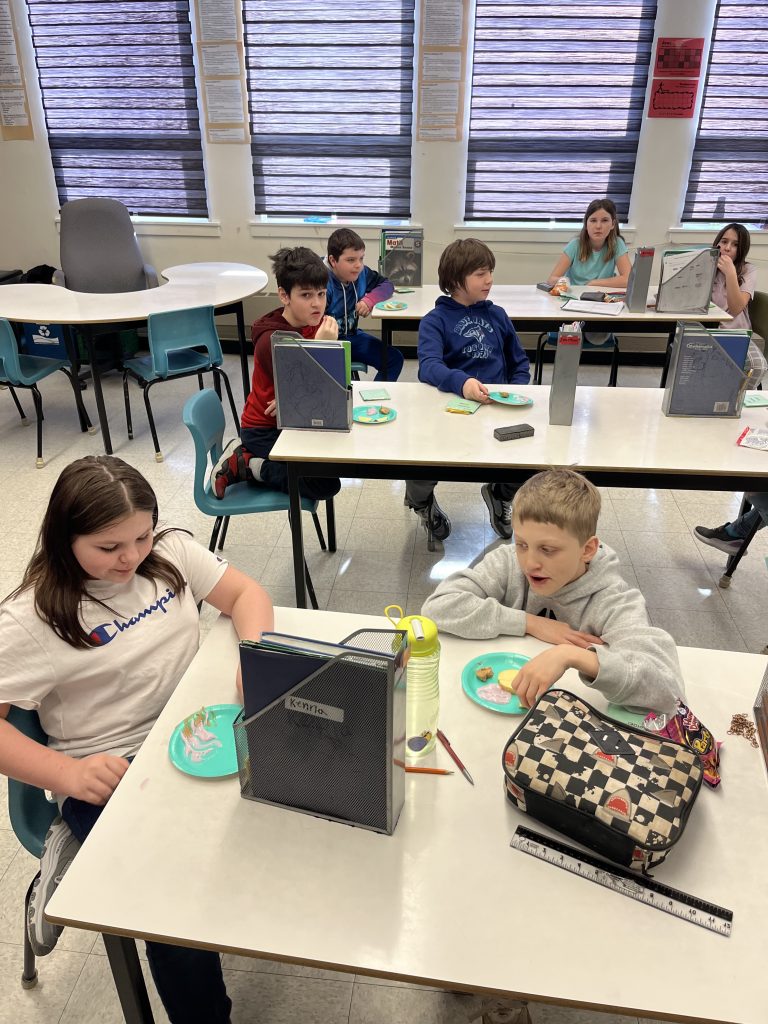On Monday, April 1, 2024, Prime Minister Justin Trudeau announced a new National School Food Program. The program has a five-year budget of $1 billion, with the goal of providing meals to 400,000 more students per year, in addition to those served by the existing patchwork of school food programs across the country.

The Department of Education and Early Childhood Development (EECD)’s Policy 711 provides the framework for school nutrition in the province, a framework ASD-W follows in any decision made on school meals.
But as March is national Nutrition Month, the district decided to do something fun, tasty, and, well, audible to promote both healthy eating among students, and the need for a provincewide and nationwide universal healthy school food program.
Perhaps you’ve heard the crunching?

Throughout March, ASD-W schools have been hosting Big Crunch events where students take time out to learn about and eat healthy foods, often those with a crunchy texture. There was a national Great Big Crunch on March 7, but ASD-W decided to make it a month-long event in district schools. Our schools participated in the initiative, organized nationally by the Coalition for Healthy School Food and promoted locally by member organization Food For All.
More than 2,200 students across 10 district schools participated in the activity.
“This is about making a noise over the importance of healthy food,” said ASD-W Community Schools Manager Karrie Bedford. “We are advocating for better school food and a school food program that New Brunswick doesn’t have.”
While the province’s Policy 711 provides the framework for school nutrition in the province, there is no official, consistently funded, provincewide school food program in New Brunswick. However, on April 1, Prime Minister Justin Trudeau announced a nationwide school food program with a five-year budget of $1 billion.


EECD Policy 711: A Healthier School Food Environment
7.0 Guidelines and Recommendations
- 7.1 Schools should strive to serve foods and beverages that are whole, minimally processed, and prepared in a healthy way.
- 7.2 Schools and food service providers should sell, serve, or offer foods and beverages that are locally sourced, seasonally available and produced or manufactured in New Brunswick as much as possible.
- 7.3 Schools should be environmentally aware by recycling, composting and reducing disposable packaging and food waste.
- 7.4 Schools and Parent School Support Committees are encouraged to use the Appendix C – Step for Improving Our School’s Food Environment as a tool to help set goals to support the healthier school food environment.
- 7.5 Traditional First Nation foods are encouraged in public school celebrations, ceremonies and other events, in compliance with the Food Premises Regulation under the Public Health Act.

“Across the province there are so many people that are making school food programs work, but it’s from a siloed approach and it’s through volunteers,” said Jill Van Horn, network director of Food For All. “We’ve had some initial investments in school food [from EECD], but nothing that we know will be ongoing, regular, and supported consistently across New Brunswick schools.”
While district staff and nutrition advocates tackled the larger questions around school food programs, students gleefully crunched their snacks.
And they got creative with their food options.
“I enjoyed the apples and yogurt mixed together,” said Lauren Parish, a Grade 1 student at Donald Fraser Middle School. “It was delicious.”
Donald Fraser Grade 2 student Ronin Anthony thought “the apples dipped in peanut butter were crunch-a-licious.”
“This was the first time for many of our students to try apples with a dip,” said Donald Fraser Memorial School Principal Rebecca Harding. “Students had great ideas of other things they could dip their apples in, like honey, cottage cheese, hummus and Nutella.”
Until Monday, April 1, Canada was the only G7 country—and New Brunswick the only province–without a consistently funded school food program, Van Horne said.
“There’s been a lot of energy and momentum around the topic,” she said. “The Great Big Crunch is a great opportunity to tell people from all different levels that school food is important, that we are really seeking strong support for school food programs.”

